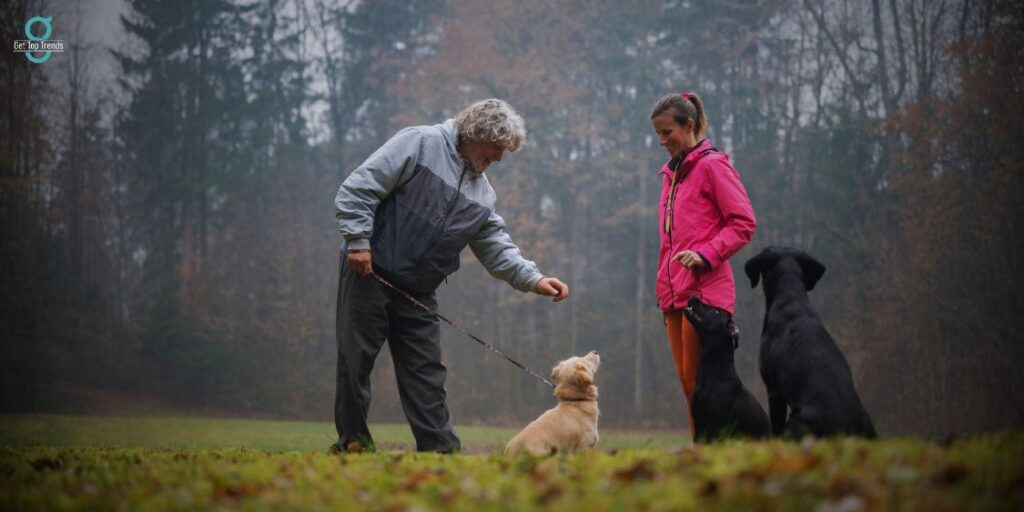In sporting dog events, canines and their handlers must be ready for every situation during a match. Some handlers feel you must adequately prepare yourself and your dog for dog boarding & training if you have not planned for every scenario.
Regardless of your luck, you and your dog will still have to overcome a particular obstacle throughout the tournament. There is little space for chance in the athletic dog world or at the level we anticipate them to reach.
Dog owners and dogs create their luck by working hard and being ready for an event. You put yourself at a disadvantage if you and your dog need to prepare for something that may arise during a competition.
Excellent performance requires dog boarding & training, and conditioning regardless of the sport or event you participate in.
If you eliminate anyone, your chances of success are significantly decreased. Also, remember that you should prepare for these days and your dog for long-term and short-term dog training.
Your anxieties could take over while you are in the middle of a competition. If you practice consistently for dog boarding with training, you will develop the ability to manage your stress so that, on the big day, you are not the weakest partner in the partnership.
Moreover, if you are looking for dog kenneling services, then Dog Kennel Danville Va is the best place for you. It is the best place for dog boarding & training, from playtime to health.
15 Tips for Effective Dog Boarding & Training

Training your dog for optimal performance requires time, patience, and consistency. Whether you’re preparing your canine companion for obedience competitions sports or want them to be well-behaved and responsive, here are 15 tips to help you in dog training for aggressive dogs achieve optimal performance:
1. Start Early: Begin dog training when your dog is still a puppy. Early socialization and basic obedience training lay a strong foundation for future performance.
2. Positive Reinforcement: Use positive reinforcement techniques like treats, praise, and toys to reward desired behaviours. This encourages your dog to repeat those behaviours.
3. Consistency: Be consistent in your commands and expectations. Use the same cues and reward systems to avoid confusion.
4. Short, Frequent Sessions: Keep training sessions short (10-15 minutes) but frequent (several times a day). Dogs have short attention spans, so regular, brief sessions are more effective than long, infrequent ones.
5. Use Clear Commands: Teach your dog clear, distinct commands. Consistency in your vocal cues and hand signals helps your dog understand what you want.
6. Patience: Dogs learn at their own pace. Be patient and never punish them for not understanding quickly. Instead, break down complex tasks into smaller, manageable steps.
7. Socialization: Expose your dog to various people, animals, and environments from a young age. This helps them become well-adjusted and less prone to anxiety or aggression.
8. Exercise and Mental Stimulation: Ensure your dog gets plenty of physical and mental stimulation. A tired dog is often more focused and responsive during training.
9. Regular Review: Periodically review and reinforce previously learned commands. Dogs may need to practice to remember or become rusty consistently.
10. Professional Guidance: Consider enrolling in obedience classes or seeking the help of a professional dog trainer, especially if you’re training for competitive performance. They can provide valuable guidance and expert feedback.
11. Bonding Time: Training sessions also serve as bonding time between you and your dog. Make sure training is a positive experience for both of you.
12. Distraction Training: Train your dog in different environments and with various distractions. This helps them generalize their skills and perform well in real-world situations.
13. Health and Nutrition: Ensure your dog is healthy and on a balanced diet. A healthy dog is more likely to perform optimally.
14. Stay Calm: Maintain a calm and assertive demeanour during training. Dogs respond better to owners who are confident and in control.
15. Adapt to Your Dog’s Personality: Recognize that every dog is unique. Tailor your training approach to suit your dog’s temperament and needs.
Concluding Thoughts
Training your dog for optimal performance is a rewarding journey that requires dedication, patience, and a deep understanding of your canine companion.
Remember that each dog is unique, and adapting your training methods to their personality is critical. Whether preparing for competitions or simply aiming for a well-behaved pet, your effort in training will lead to a happier, healthier, and more obedient furry friend. Get more pet care & training guides from Get Top Trends.


